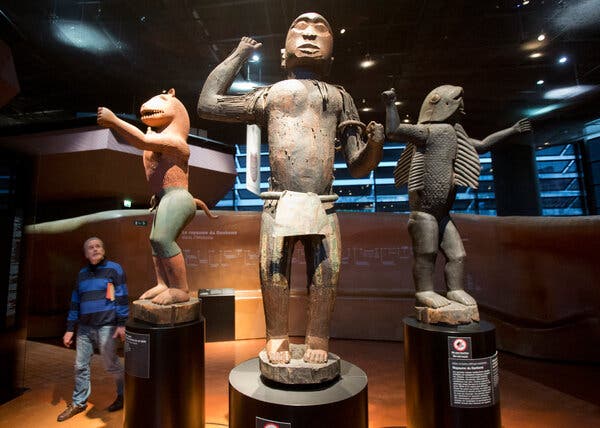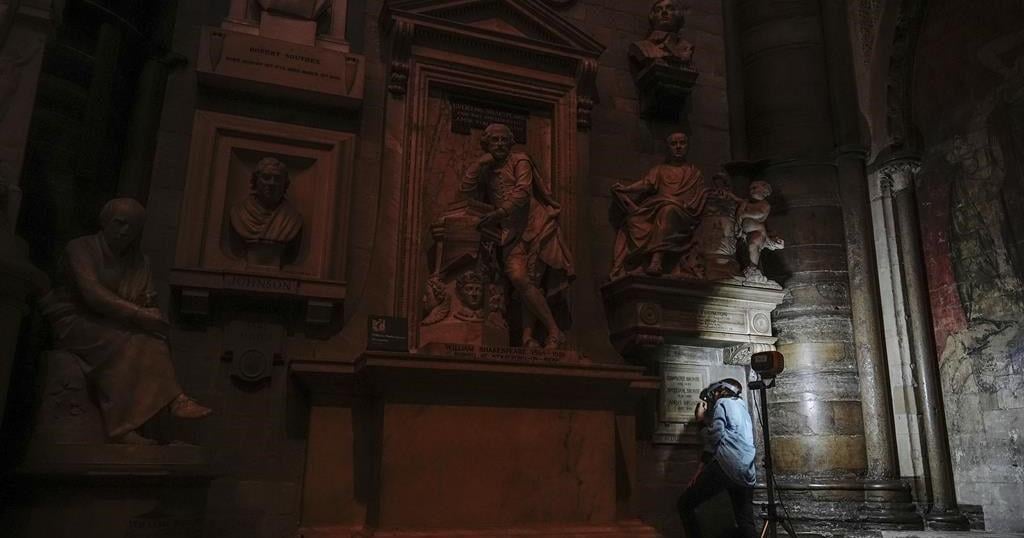LONDON (AP) — With a few daubs of a paintbrush, the Brontë sisters have got their dots back.
More than eight decades after it was installed, a memorial to the three 19th-century sibling novelists in London’s Westminster Abbey was amended Thursday to restore the diaereses – the two dots over the e in their surname.
The dots — which indicate that the name is pronounced “brontay” rather than “bront” — were omitted when the stone tablet commemorating Charlotte, Emily and Anne was erected in the abbey’s Poets’ Corner in October 1939, just after the outbreak of World War II.
They were restored after Brontë historian Sharon Wright, editor of the Brontë Society Gazette, raised the issue with Dean of Westminster David Hoyle. The abbey asked its stonemason to tap in the dots and its conservator to paint them.
“There’s no paper record for anyone complaining about this or mentioning this, so I just wanted to put it right, really,” Wright said. “These three Yorkshire women deserve their place here, but they also deserve to have their name spelled correctly.”
It’s believed the writers’ Irish father Patrick changed the spelling of his surname from Brunty or Prunty when he went to university in England.
Raised on the wild Yorkshire moors, all three sisters died before they were 40, leaving enduring novels including Charlotte’s “Jane Eyre,” Emily’s “Wuthering Heights” and Anne’s “The Tenant of Wildfell Hall.”
Rebecca Yorke, director of the Brontë Society, welcomed the restoration.
“As the Brontës and their work are loved and respected all over the world, it’s entirely appropriate that their name is spelled correctly on their memorial,” she said.
























